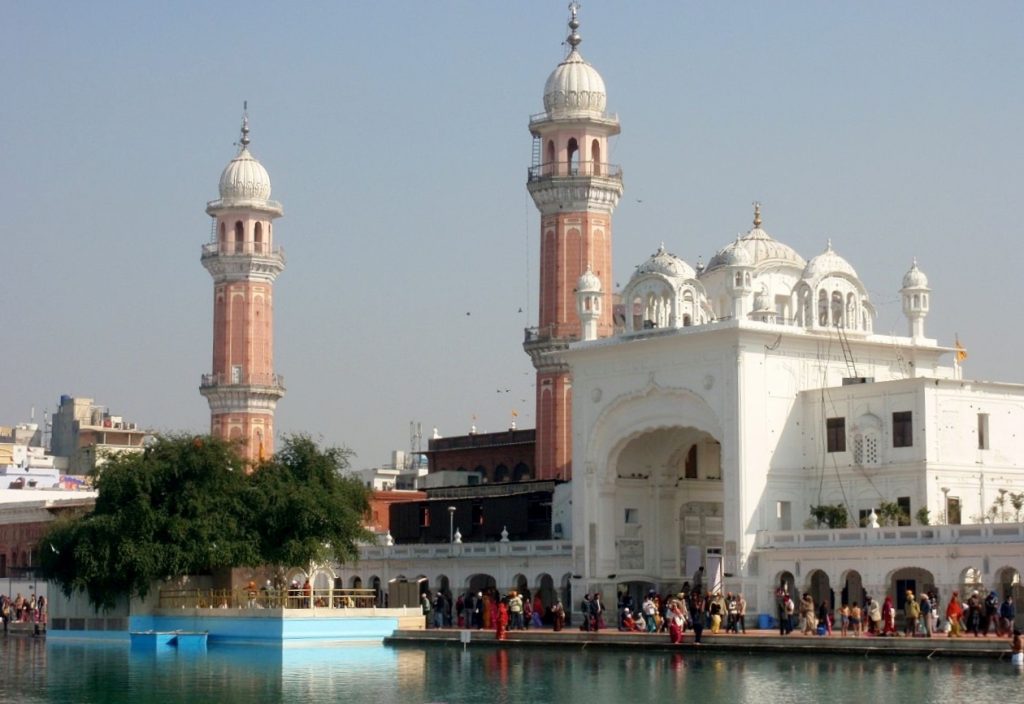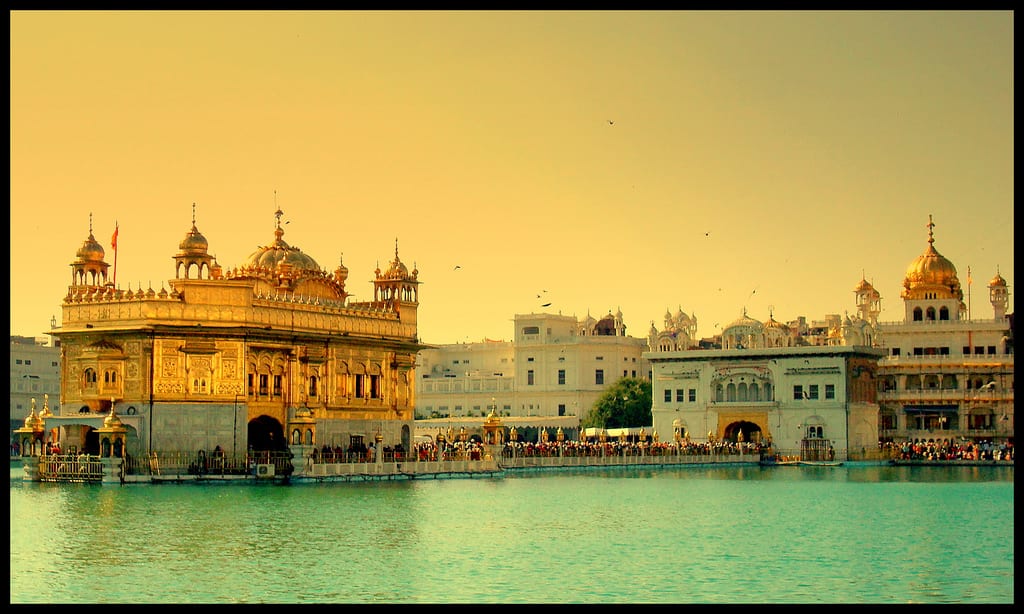Discover the legacy of Bhai Amrik Singh at Sri Darbar Sahib. Uncover his stories and contributions to this historic site.
NIRANKARIS, a sect of the Sikhs born of a reform movement which arose in northwest Punjab in the middle of the nineteenth century aiming to restore the purity of Sikh belief and custom. Its founder, Baba Dayal (1783-1855), was a contemporary of Maharaja Ranjit Singh. A man of humble origin, he cavilled at the shortcomings of the mighty and assailed the rites and observances which had perverted the Sikh way of life. His main target was the worship of images against which he preached vigorously.
BABA BAKALA (31°34`N, 75°16`E), a small town in Amritsar district of the Punjab, is sacred to Guru Hargobind and Guru Tegh Bahadur. The original name of the place was Bakala. As Guru Har Krishan lay on his deathbed in Delhi, he was asked by the sangat to name his successor. All that the Guru could say at that time was \'Baba Bakale\' meaning that (Guru) Tegh Bahadur, who was the brother of his (Guru Har Krishan\'s) grandfather (baba) and who was living at Bakala, was to be the next Guru. Bakala, thereafter, came to be called Baba Bakala.
Explore the legacy of Parduman Singh Giani, the key figure in managing the historic Sri Darbar Sahib, Amritsar. Discover his journey amidst royal intrigues.
BUNGA: A place of residence for the Sikhs or the place for rest for the pilgrims. There were at least 69 Bungas at Amritsar in the nineteenth century, some of them are still in existence. Another term for the resting hostel for the Sikh pilgrims is Saran. At Darbar Sahib, Amritsar Guru Ram Das Saran has been built for the pilgrims. Another Saran at Darbar Sahib is named Guru Nanak Niwas. Lately, a paid hostel named Aka/ Rest House, too, has been built. There are Sarans attached to almost all of the major Gurdwaras.
Explore the legacy of Rai Ram Dial, key vakil at Firozpur, known for his dispatches on significant Sikh kingdom events, including Lord Auckland's meeting.
Discover the rich history of Darbar in Sikhism, symbolizing royal courts and sacred shrines, like the revered Sri Darbar Sahib in Amritsar.
Explore the remarkable story of Ranjodh Singh Majithia, a key figure in the Sikh Darbar and the first Anglo-Sikh War. Discover his military prowess.
EVENTS AT THE COURT OF RANJIT SINGH, 1810-1817, edited by H.L.O. Garrett and G.I.. Ghopra, is a rendition in English of Persian newsletters comprising 193 loose sheets and forming only a small part of a large collection preserved in the Alienation Office, Pune. This material was brought to the notice of the editors by Dr Muhammad Nazim, an officer of the Archaeological Survey of India. Events at the Court, of Ranjit Singh was first published in 1935 by the Punjab Government Records Office, Lahore, as their monograph No. 17, and reprinted, in 1970, by the Languages Department, Punjab, Patiala. The newsletters, entitled "Akhbar Deorhi Sardar Ranjit Singh Bahadur" cover the period from 1 November 1810 to 8 August 1817, with a sprinkling of a few supplementary ones written up to 2 September 1817 from Shahpur, Multan, Amritsar and Rawalpindi.
Discover the political challenges and insights of Colonel Richmond during the unstable times on the Sutlej frontier in the 1840s.





